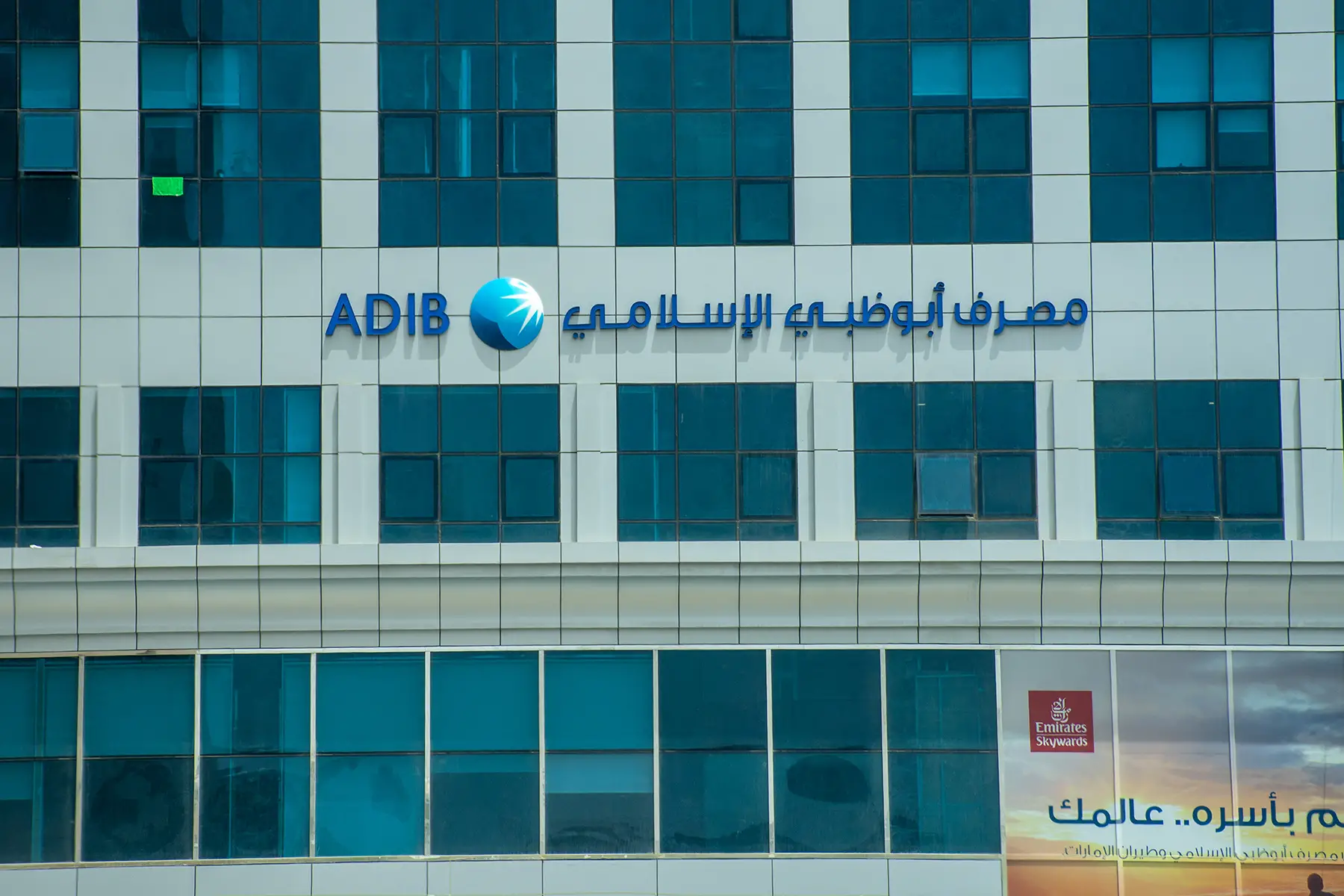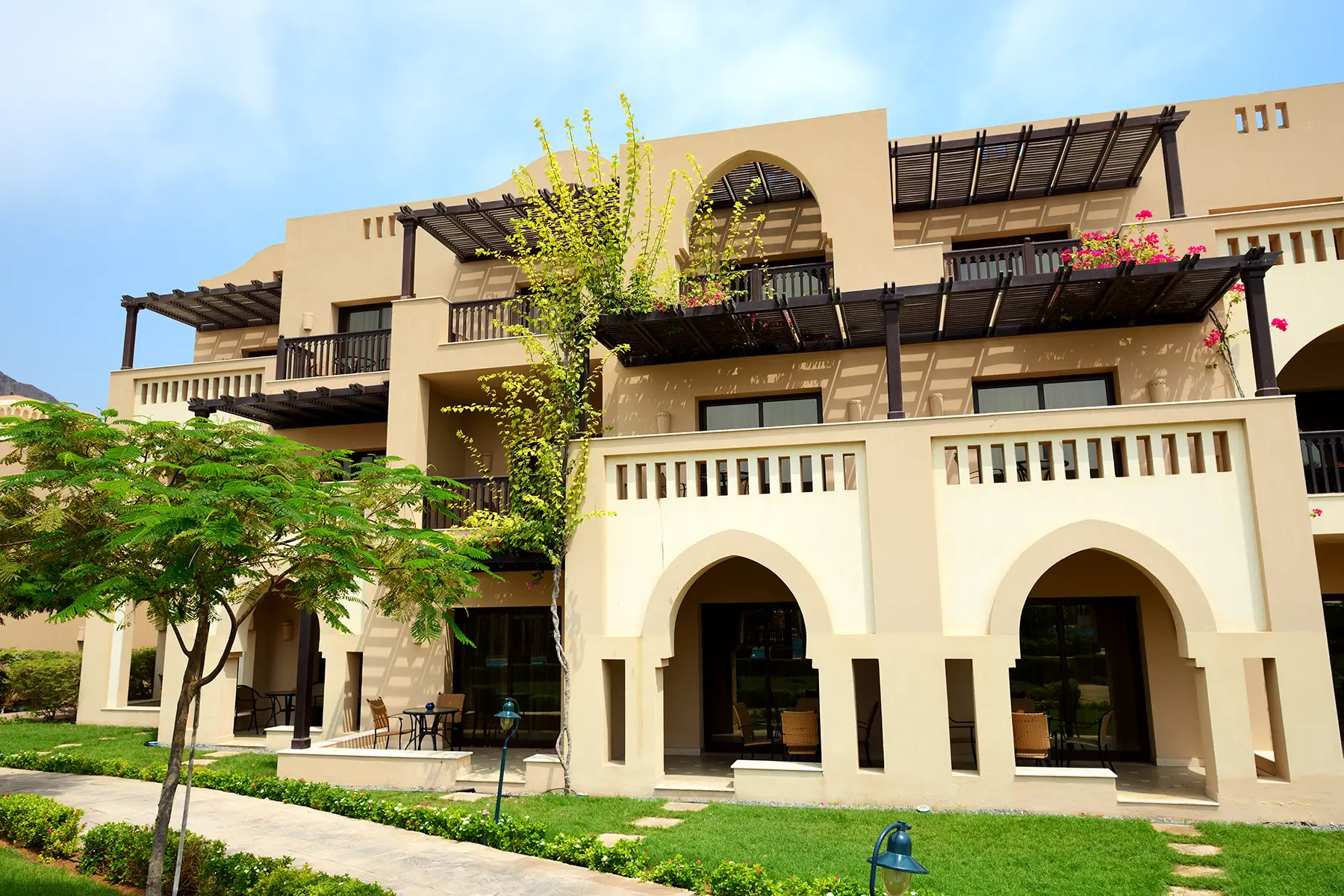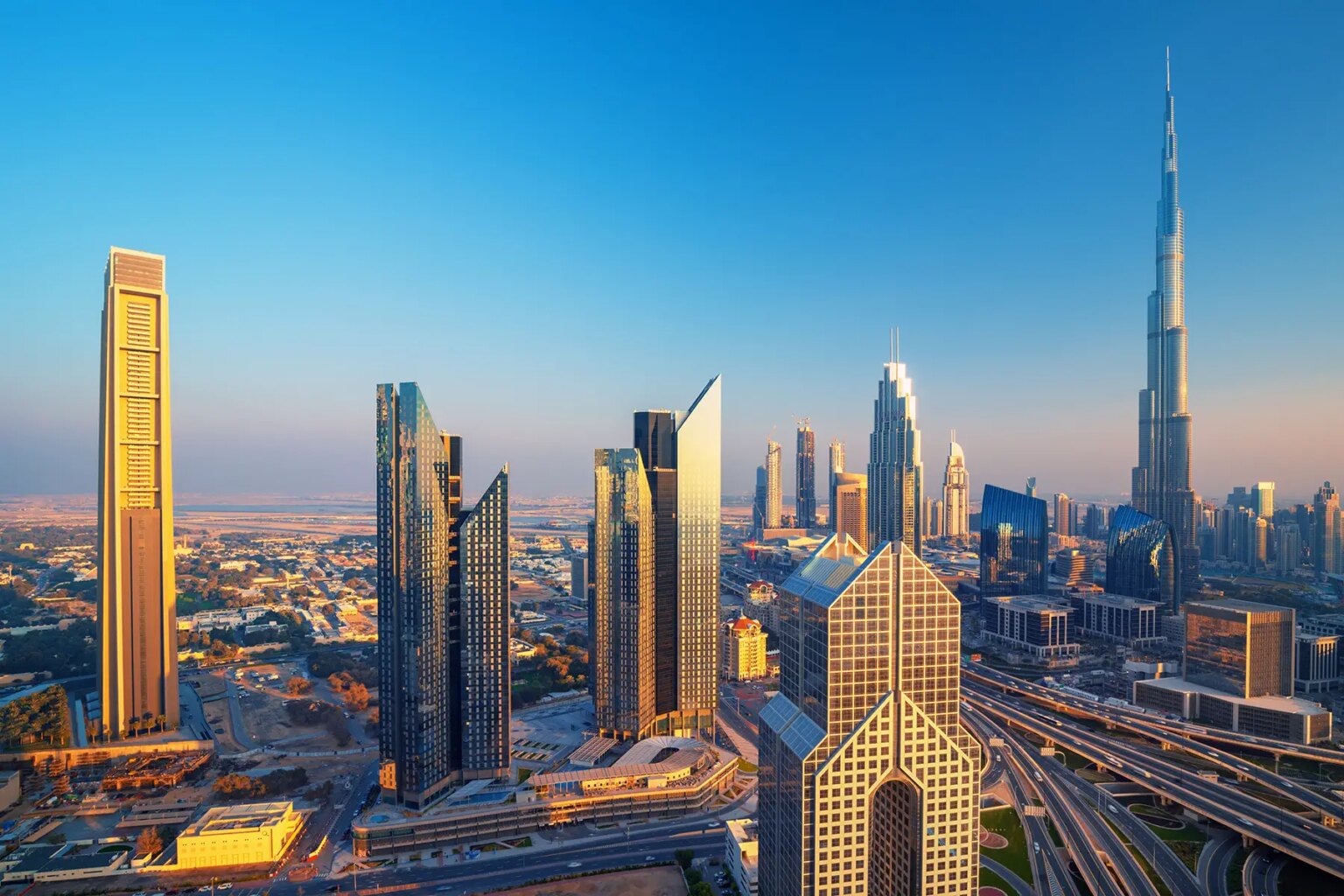Expats and non-resident foreigners also have an array of investment options in the region at their fingertips. Furthermore, the law offers good protection for investments in the UAE. This helpful guide provides all the essential information you need when considering investing in the United Arab Emirates.
Continue reading for the following topics:
- Investment in the UAE
- Savings account investments in the UAE
- Pension investments in the UAE
- Property investment in the UAE
- Business investments in the UAE
- Investment funds in the UAE
- Investing in stocks and shares in the UAE
- Tax on investments in the UAE
- How to invest wisely in the UAE
- Investment advice in the UAE
- Useful resources
Investment in the UAE
Investing in the United Arab Emirates is straightforward, and is encouraged by a business-friendly legal, regulatory, and financial environment. As one of the world’s freest economies with a globally-minded business culture, the UAE is a stable, investor-friendly global hub. In 2018, the Gulf’s second-largest economy received US$10.3 billion in foreign direct investment (FDI); mainly in trading activities, real estate, finance, insurance, and manufacturing.
Investment in the UAE is growing, with an expanding range of asset classes for expats to choose from to build wealth. From stock exchange trading to real estate purchase, private pension schemes, funds, and deposit accounts, there are investing options to suit pretty much any risk profile. And it isn’t only in wheeler-dealing Dubai where it all happens; Abu Dhabi, Ras Al Khaimah, and Sharjah are also at the investment party.

Investing in the United Arab Emirates is attractive for many reasons. Oil and gas may still flow copiously from her deserts, however, the local economy has never been more open for business. It’s in decent shape, too; the International Monetary Fund (IMF) sees gross domestic product (GDP) growing by 3.7% in 2019 (it was 2.9% in 2018). The central bank, meanwhile, forecasts a non-oil growth of 3.4% in 2019 (compared to 2.6% in 2018).
The investment climate in the UAE
The UAE investment climate is viewed positively. It is also one of the world’s easiest places in which to do business. Getting a license to set up a local business to trade locally or internationally is quick and simple, and some structures can be set up with 100% foreign ownership. Expats and non-residents can start trading on the UAE Stock Exchange with minimal paperwork, while many foreign investors reap the benefits, and profits, of the country’s vibrant real estate market. Private pension schemes, mutual funds, and other asset classes are also popular investing options there.
Perhaps the clincher for many investors is the fact that the UAE is an oasis of economic, financial, and political calm. The government’s ambitious development goals for the country offer a degree of certainty for investors and markets. As a result, many expats and non-residents are comfortable about investing there.
Savings account investments in the UAE
Local banks serve UAE expats well and offer a range of (conventional and sharia-compliant) savings and deposit accounts, some with really attractive rates of return.
Abu Dhabi Islamic Bank (ADIB), for example, pays profits (the sharia equivalent of interest) quarterly to account holders, while First Abu Dhabi Bank offers a 4% annual return on a minimum balance of AED 10,000. Emirates NBD’s Muradaba account offers up to 1.35% return on a minimum balance of AED 5,000; the Mashreq Set Up Saver Account (interest up to 6%) requires a minimum balance of AED 10,000, and RAK Bank’s Fast Saver Account offers up to 2%.

UAE banks also offer a range of Islamic and non-Islamic deposit accounts. Commercial Bank of Dubai’s Step Up Deposit Account offers a 4% annual return on a minimum AED 10,000 deposit. National Bonds offer an expected annual profit rate of 2.5%, with profit paid quarterly, on a minimum investment of AED 100,000. RAKBANK’s Fixed Deposit Plus account provides a maximum of 3.25% on a 36-month deposit.
Yalla Compare is a useful online resource detailing features, eligibility criteria, profit rates, bank charges, and opening procedures for UAE savings and deposit accounts. It is a good idea to shop around for a product that best suits your circumstances and investment goals.
Pension investments in the UAE
A March 2019 survey by Friends Provident International and YouGov revealed that about one-third of UAE-based expats expect to retire by the age of 55, and just over half by the age of 60. However, just under half of them were actually saving for their retirement.
Currently, expats working in the UAE receive an end-of-service gratuity payment from their employer. This is calculated on their last-drawn basic salary and how many years they have been with the company. However, a new voluntary pension scheme has recently been proposed in the UAE. Under the plan, employees’ end-of-service contributions will be collected from employers, and the sum will be invested on the employee’s behalf. The launch date is still unknown, however, those participating in the scheme will be able to contribute a higher monthly amount if they wish.
Some UAE expats choose to invest in a private pension plan, however. Things to consider if taking the plunge into a private pension plan include:
- When you aim to retire;
- How much you need to save to retire at that age;
- The type of retirement lifestyle you want;
- Where you want to retire;
- Whether you have major expenses on the horizon;
- How inheritance laws might affect retirement plans
Property investment in the UAE
UAE property is a popular asset class that has been on the radar of international investors for almost two decades. Handsome profits have been made, and fingers have been burned in what was, for years, seen as a boom-and-bust, get-rich-quick-if-you-can market.
The roller coaster ride is, mercifully for most investors, no more. Tighter regulations limit property speculation and, as a result, the market is far more stable – and affordable. Real estate consultancy JLL notes that Dubai apartment rental and sale prices fell 11% and 9% respectively in the second quarter of 2019; compared with the same period last year. Villa prices fell 5% and 9% respectively in the same period. In Abu Dhabi, JLL says apartment rents fell 11% year on year in the same period, with prices set to fall further towards the end of this year. Prime villas went for 6% less, and apartments 15% less, in the period.

To further stabilize the country’s property market, in mid-2019 the government launched a retirement visa and issued the so-called ‘Golden Card’ long-term residence permits for investors. New laws on freehold ownership for expats buying apartments, villas, and land in Abu Dhabi (previously expats could only buy property on a 99-year lease) also came into force in 2019.
The investment process in the UAE
The formalities of investing in UAE property are straightforward. That said, they may be different from those the investor is familiar with. It is a good idea to engage a reputable real estate agent, and perhaps a lawyer, to help you navigate the process. They should assist, for example, with drafting agreement terms for the buyer and seller, the signing of a Memorandum of Understanding, payments of fees to developers and relevant government departments, and transfer of ownership documents.
The UAE expat mortgage market is competitive. Banks that lend to expats include Abu Dhabi Islamic Bank (ADIB), RAKBANK, First Abu Dhabi Bank, Mashreq, Standard Chartered, Emirates NBD, and HSBC. Yalla Compare is a useful resource for mortgage seekers.
Business investments in the UAE
Expats and non-resident foreigners can set up a UAE company with 100% ownership (i.e., no local partner is required) in a free zone. This is a designated area where taxes or restrictions on business, employment, or trade do not apply in the same way they would on the mainland. A UAE free zone company is generally easier to set up and obtain licenses for. Expats can also set up an onshore company. Because this entity needs a UAE citizen to have a 51% share, the costs of setting up (and running) an onshore UAE company are typically higher.

As a foreign investor, you will need to approach the Department of Economic Development (DED) in the emirate (Abu Dhabi, Dubai, Sharjah, Ajman, Umm Al Quwain, Ras Al Khaimah, and Fujairah) in which you intend to set up the business. The DED will grant initial approval for the business, and you will be able to register the trade name.
Bear in mind that the costs of setting up a business in the UAE depend on the type of entity, activity, and license required. Capital requirements may, for example, vary according to the business type. Check out the UAE companies’ legislations for details.
Investment funds in the UAE
According to Investopedia, an investment fund is defined as “a supply of capital belonging to numerous investors used to collectively purchase securities, while each investor retains ownership and control of his own shares.” In addition, an investment fund provides a broader selection of investment opportunities, greater management expertise, and lower investment fees than investors might be able to obtain on their own. Types of investment funds available to foreign investors and expats in the UAE include mutual and equity funds.
HSBC, Citibank, Emirates NBD, and First Abu Dhabi Bank offer asset management products including mutual funds. A new kid on the block is Sarwa, an online financial advisor specializing in exchange-traded funds (ETFs).
Investing in stocks and shares in the UAE
Investing in the United Arab Emirates stock market is straightforward. Individuals must open a trading account with a broker registered with one of the exchanges in Dubai or Abu Dhabi (there are three exchanges in the UAE: Dubai Financial Market (DFM), Abu Dhabi Securities Exchange (ADX), and NASDAQ Dubai). The investor must also obtain an Investor Number (available direct from the Investor Services Desk at the exchanges) to trade on DFM and ADX.
As with any stock trading, do your due diligence on the company, sector, economic indicators, and market fundamentals. Consider engaging a fund manager. And, perhaps most of all, know your risk appetite before you jump in.
Tax on investments in the UAE
There is no personal income tax in the UAE. There is no capital gains tax on the disposal of real estate or securities by an individual. Rental income is taxed at 5% (except in Abu Dhabi, where there is no municipal tax on rented premises, however, landlords must pay license fees).
How to invest wisely in the UAE
UAE expats have a plethora of options for investing their hard-earned salaries and savings. Shop around and maybe hire the services of a financial planner or consultant who can assess your current financial situation. This includes factors such as your objectives and time horizons. This way, you can make optimum decisions for your investment portfolio.
Bear in mind that investing in the UAE may be different from what you are used to. Set your expectations, and goals, accordingly. Do your due diligence, and understand the market.
Factors to consider when investing in the UAE
- What investment opportunities are available as a foreigner or resident expat?
- How stable are the regulations around foreign investment in the UAE?
- What levels of protection do foreign investors receive in the UAE?
- Are there any incentives to attract foreign investment (e.g., loans, subsidies)?
- How could/does the regional geopolitical situation affect the UAE’s economy?
- Is the country politically stable?
- Is the currency stable?
- How mature is the banking and financial system?
The bottom line is – do your homework! And engage with people on the ground who can give accurate, impartial advice.
Investment advice in the UAE
The first port of call for most foreign investors in the UAE is the government agencies. Dubai FDI helps foreign businesses set up in the city, while the Ras Al Khaimah Investment Authority (RAKIA) offers personalized service and support for entrepreneurs. Down in the capital, it is worth checking out the Abu Dhabi Chamber for business support services.



